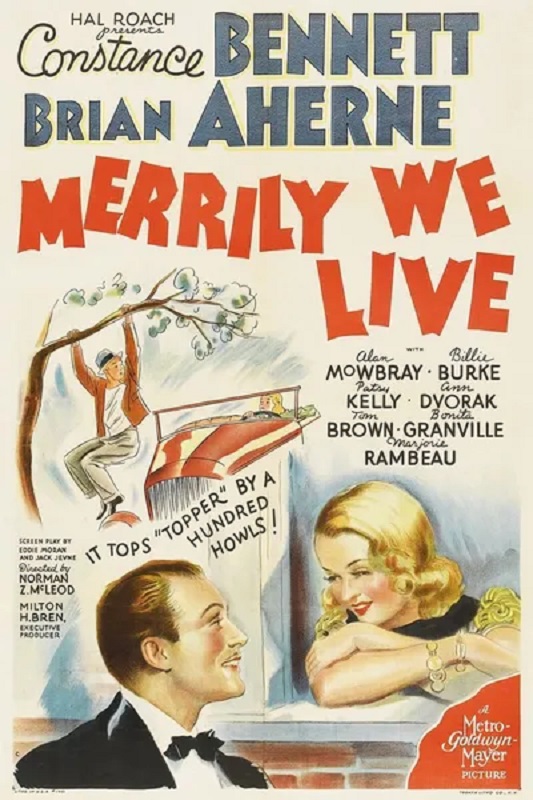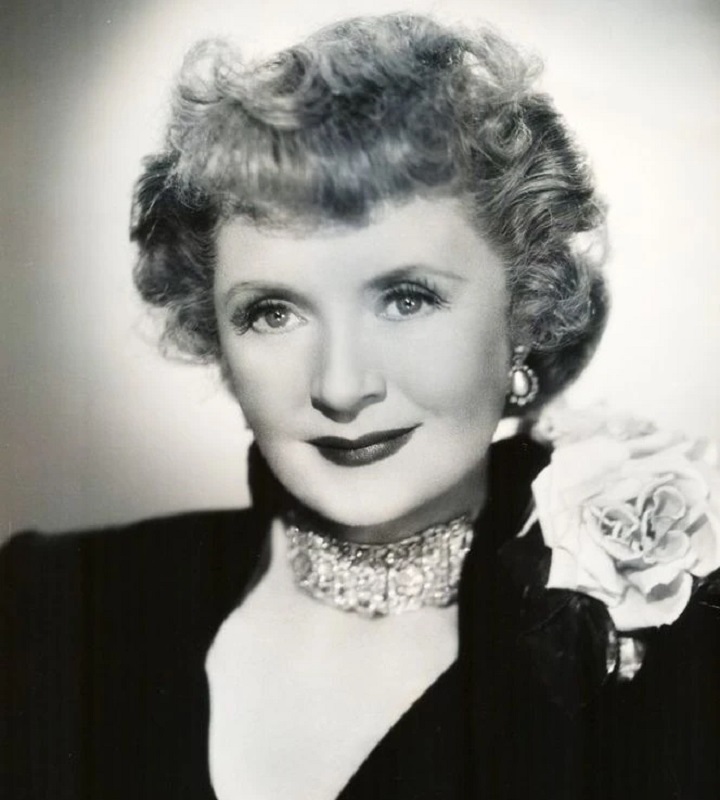


1938 – Billie Burke
Merrily We Live
I’m starting to think that Billie Burke was a one-trick pony. I’ve only seen her in a few films, but she seems to play the exact same character every time. But darn if she doesn’t do it so well. She played the ditzy mother figure. From The Wizard of Oz to Topper, to Merrily We Live, it all seems to be variations on a theme. But that‘s just it. She wasn’t unattractive, and she was fairly adept at comedy. This was a fast-paced screwball comedy, and the dialogue was quick and witty. Burk proved that she could keep up with the best of them.
But because of the wildly silly nature of this one, she turned the scatterbrained matriarch into overdrive. She played Emily Kilbourne as a blithely vague and cheery woman who had a penchant for reforming tramps and hobos. The roll required stream of consciousness patter with a loveable disposition. You see, as a screwball comedy, I expected the entire cast to be silly in one way or another, but she seemed to lead the charge. It just seemed so natural for her.
There was only one scene in the movie where she showed a negative emotion, and that was near the beginning, when she learns that the most recent tramp has abandoned the family, stealing all the silver, among other things. She breaks into crocodile tears and flees the scene. But even that was done in a perfectly comedic way. And within the hour, when a new tramp shows up at the door, she is all smiles and sunshine once again. She was actually a delight to watch in this light-hearted film and so why not give her an Oscar nod.
But I suppose I should expect no less from her. She was a veteran actress, having started on Broadway in 1907, doing silent films from 1914 to 1921, and after several years in radio, getting into sound films in 1929. But the few roles I’ve seen her play have all been supporting roles. I’ve never seen her take the lead, though I have read that she did in some of her silent films. And apparently her final film appearance was in 1960, so she still had a long career ahead of her. But I wonder how she would have done in a serious drama. Comedians usually do incredibly well. As I’ve said before, you often have to get the comedy to deliver the drama.





